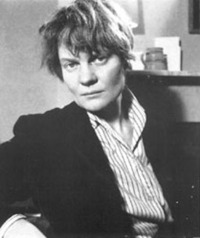Philosophy as a practice is not limited to academic institutions. In fact, most of the great figures in early modern philosophy did not hold positions as professors. Each of the following great philosophers’ works are widely read in colleges and universities, but none of them were members of any faculty: Descartes, Hobbes, Locke, Berkeley, Leibniz, Hume, Rousseau, Voltaire. Socrates, one of the first of the great philosophers laid the foundation for the academy (his student, Plato, founded a philosophical community in Athens which became known as the academy), though Socrates himself practiced in public gathering spaces, in private homes, and wherever and whenever people were open to dialogue.
The department of philosophy at St. Olaf College is committed to fostering in students a life-long love of philosophy whether or not students go on to formally pursue philosophy in graduate school or undertake a vocation in philosophy professionally. Many outstanding philosophers of the nineteenth and twentieth century have impacted the formal study of philosophy, though their lives were not the lives of academics, but as writers, politicians, members of the French Resistance, or even as Prime Minister of India.
If philosophy is practiced outside of educational institutions and research universities, how may we identify or create places or relationships that are philosophical?
If we use the definition of ‘philosophy’ as the love of wisdom (following the etymology of the term, ‘philo’ being Greek for ‘love’ and ‘sophia’ for ‘wisdom’), then any site or relationship that promotes and succeeds in practicing the love of wisdom may be considered a philosophical site or relationship. So, in terms of sites, any number of places may be designated as sites for philosophy, from regularly meeting in coffee shops or muesums or in apartments or libraries or on walks. In terms of relationships, there can be friendships, families, societies, book groups, and so on, where personal interaction is oriented to assist each of us in the love of wisdom. If this is right, then relationships and sites that involve manipulation, the supression of open exchanges, the censoring of free inquiry and challenges, are profoundly anti-philosophical.
Just as we should resist the temptation to restrict the term ‘philosophy’ to describe institutions or texts or courses (e.g. X is philosophical if and only if it is a Department or a text or course such as Introduction to Philosophy), and we should instead think of relationships and non-officially designated sites as philosophical, the next step is to think about how one’s life as a whole or in part may itself be philosophical. Arguably, if you live your life out of the love of wisdom, both in thought and action and desire or emotion (‘love’ being a desire or emotion), you are living a philosophical life even if you have never heard of the term ‘philosophy’ or attended any course in philosophy.

Iris Murdoch was a highly gifted, British philosopher who made a living publishing philosophy and novels. Her work has been of great influence in philosophy and the arts with university courses dedicated to her work, and yet for most of her life she did not hold an academic appointment. For her, philosophy was a way of life, and not narrowed to an academic career.
You must be logged in to post a comment.